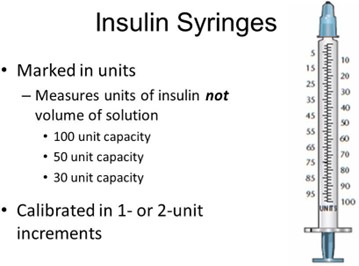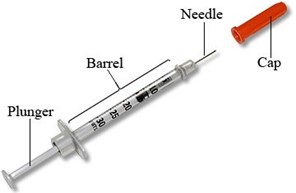Important nursing intervention(s) when caring for a patient with Cushing syndrome include:
observing for signs of hypotension.
monitoring blood glucose levels.
protecting patients from exposure to infection.
restricting protein intake.
Correct Answer : A,B,C
b. Monitoring blood glucose levels: This is an essential nursing intervention as patients with Cushing syndrome are at risk for developing diabetes mellitus because of cortisol on glucose metabolism. The nurse should monitor the patient's blood glucose levels regularly and report any abnormal readings to the healthcare provider.
c. Protecting patients from exposure to infection: Patients with Cushing syndrome are also at risk for developing infections due to the immunosuppressive effects of cortisol. The nurse should take appropriate infection control measures, such as frequent handwashing, wearing gloves, and isolation precautions if necessary.
a. Observing for signs of hypotension: Although hypotension is not typically seen in patients with Cushing syndrome, it can occur in some cases due to the depletion of cortisol. The nurse should monitor the patient's blood pressure regularly and report any abnormal readings to the healthcare provider.
Nursing Test Bank
Naxlex Comprehensive Predictor Exams
Related Questions
Correct Answer is ["A","B","C"]
Explanation
b. Monitoring blood glucose levels: This is an essential nursing intervention as patients with Cushing syndrome are at risk for developing diabetes mellitus because of cortisol on glucose metabolism. The nurse should monitor the patient's blood glucose levels regularly and report any abnormal readings to the healthcare provider.
c. Protecting patients from exposure to infection: Patients with Cushing syndrome are also at risk for developing infections due to the immunosuppressive effects of cortisol. The nurse should take appropriate infection control measures, such as frequent handwashing, wearing gloves, and isolation precautions if necessary.
a. Observing for signs of hypotension: Although hypotension is not typically seen in patients with Cushing syndrome, it can occur in some cases due to the depletion of cortisol. The nurse should monitor the patient's blood pressure regularly and report any abnormal readings to the healthcare provider.
Correct Answer is C
Explanation
An insulin syringe is measured in units (U). The concentration of insulin is usually expressed in units per milliliter (U/mL), and the volume of the syringe is also measured in milliliters (mL), but the actual dosing of insulin is in units. It is important to use the correct syringe size and to measure the correct number of units to ensure accurate dosing of insulin.


Whether you are a student looking to ace your exams or a practicing nurse seeking to enhance your expertise , our nursing education contents will empower you with the confidence and competence to make a difference in the lives of patients and become a respected leader in the healthcare field.
Visit Naxlex, invest in your future and unlock endless possibilities with our unparalleled nursing education contents today
Report Wrong Answer on the Current Question
Do you disagree with the answer? If yes, what is your expected answer? Explain.
Kindly be descriptive with the issue you are facing.
